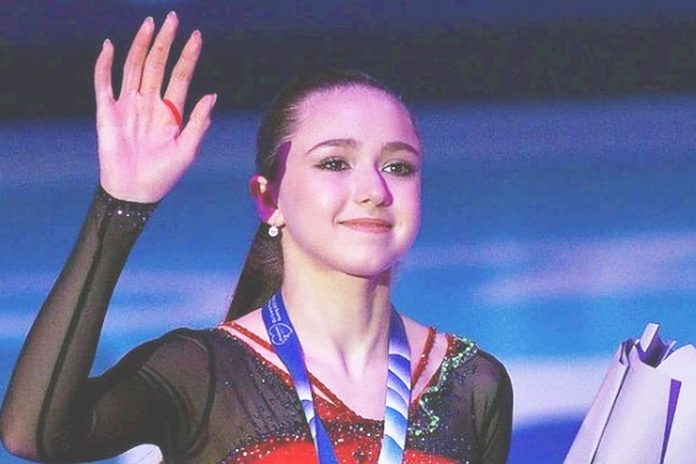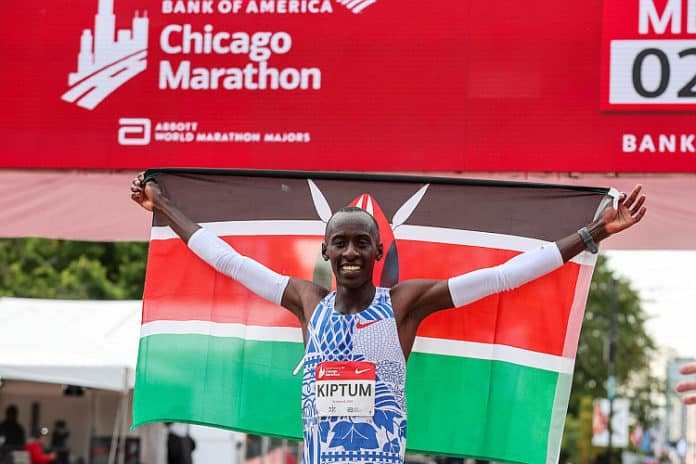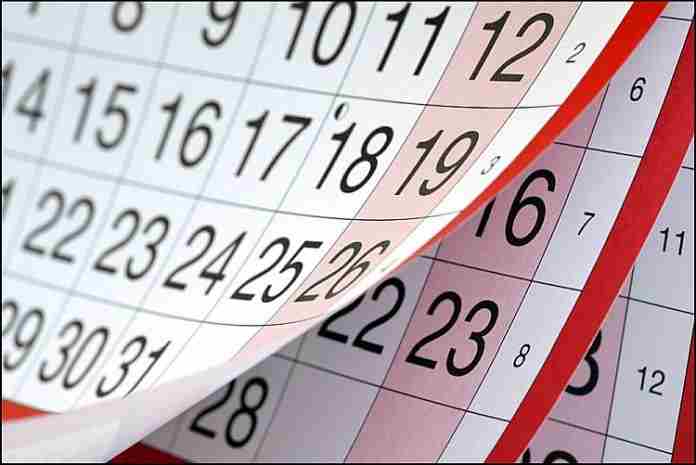★ The Sports Examiner: Chronicling the key competitive, economic and political forces shaping elite sport and the Olympic Movement.★
★ To get The Sports Examiner by e-mail: sign up here! ★
★ Best wishes for a happy and healthy 2024 from The Sports Examiner! ★
≡ THE 5-RING CIRCUS ≡
What will be the big stories of 2024? Certainly the Olympic Games in Paris this summer, but there are loads of legal, political and business stories that will command attention before and after. The biggest stories of 2024 (we think):
5. The conclusion of the Valieva case and the 2022 Winter Games
4. A year, and new challenges for LA28
3. Will Thomas Bach stay, or will he go?
2. What about Russia?
1. At long last, the 2024 Olympic Games in Paris
● Panorama: Athletics (two arrested in death of Uganda’s Kiplagat) = Badminton (Shu gets second U.S. title) = Cross Country Skiing (Diggins takes Pursuit in Tour de Ski stage 3) = Ski Jumping (2: Lanisek wins in Garmisch; Pinkelnig wins in Obertsdorf) ●
● Schedule: Nearing the end of our technical migration and upgrades, so look for the next edition of TSX on Thursday (4th). ●
LANE ONE:
Projecting the top stories of 2024, from no. 5 to no. 1
The 2024 Olympic Games in Paris will be the highlight of the year, no doubt, but there are other stories that will be talked about in the run-up and well afterwards. Today, let’s look at our projected top-five stories in international sport in 2024.
5.
The conclusion of the Valieva case and the 2022 Winter Games
Way back on 25 December 2021, 15-year-old Kamila Valieva won the Russian women’s championship and tested positive for trimetazidine, a prohibited substance under the World Anti-Doping Code.
However, it took a long time for the Stockholm lab to process her sample and in the interim, she won the European Championship and was the favorite for the Olympic title at the Beijing Winter Games.
She competed in the Team Event, winning the Short Program and the Free Skate, and Russia won the gold medal over the U.S., 74-65, with Japan third (63) and Canada fourth (53), on 7 February 2022. But the report of her positive test came in the same day and the awards ceremony was never held.
Valieva was initially suspended by the Russian Anti-Doping Agency, then had her sanction reversed by the appeals committee and after a challenge – in Beijing – to the Court of Arbitration for Sport, was allowed to compete in the women’s Singles event, eventually finishing fourth.
That is essentially where we are now, almost two years later. After a long inquiry by RUSADA, the World Anti-Doping Agency got tired of waiting and intervened with a filing to the Court of Arbitration for Sport, joined by the International Skating Union and, also, RUSADA itself.
Two hearings were held in 2023, in September and November, and a decision by the arbitrators is due by the end of January or perhaps into early February.
Unbelievable. But the last event to have medals awarded for the 2022 Olympic Winter Games will finally be closed this year, possibly with a ceremony during the 2024 Olympic Games in Paris!
4.
A year, and new challenges for LA28
Los Angeles was awarded its third Olympic Games back in 2017, an unprecedented 11 years ahead of a 2028 Games. In August, the sporting world’s attention will fully turn to Los Angeles at the conclusion of the 2024 Olympic and Paralympic Games in Paris.
And the LA28 organizers are in transition.
The organizing committee has remained small and mostly quiet, developing its plan for using all existing venues for the 2028 Games, and funding – with the help of advanced funds from the International Olympic Committee – a $160 million youth sports partnership with the Los Angeles Recreation and Parks Department.
But in 2023, a lot happened. In October, its request for five additional sports – baseball and softball, cricket, flag football, lacrosse and squash – was approved and with the add-back of modern pentathlon and weightlifting, there will be a record 35 sports at the 2028 Olympic Games, with a 36th – boxing – likely to be added back as well.
The number of athletes who will compete will swell beyond the recommended 10,500 to at least 11,242.
In December, LA28 announced that chief executive Kathy Carter would transition to a Senior Advisor role and that Chief Business Officer Brian Lafemina, who had operating responsibilities that covered most of the Games preparations, had left the organization.
The organization will have to expand, the planning effort will have to be accelerated, and sponsorship sales will continue. LA28’s revenues have been modest this far, but far more is expected now:
● 2020: $2.63 million in revenue
● 2021: $21.97 million
● 2022: $121.6 million projected
● 2023: $181.7 million projected
A financial report covering 2022 is not due until the second quarter of 2024.
In addition to new leadership, LA28 could also reveal an engaging venue plan that could nationalize the 2028 Games. Although not officially announced, the flatwater canoeing and rowing events have been moved from Lake Perris in Riverside County – east of Los Angeles – to the Long Beach Marine Stadium used for the 1932 Olympic Games. But it was noted at October’s IOC Session when the added sports were approved that some of them could well be held outside of Los Angeles.
Baseball at Yankee Stadium? Perhaps the Canoe Slalom events and Softball in Oklahoma City, which has perhaps the best venues in the U.S. for both events? How about Lacrosse at an eastern venue, where the sport has high visibility? And what about the plans for Cricket and Flag Football, both of which have massive potential as Olympic sports?
Look for the LA28 organizers to come out of their shell in 2024. In the Hollywood tradition, it should be entertaining!
3.
Will Thomas Bach stay, or will he go?
Spontaneity is not usually part of an IOC Session, as the all-member meetings of the International Olympic Committee are known. But in Mumbai (IND) last October, Algerian member Mustapha Berraf, also the President of the Association of National Olympic Committees of Africa (ANOCA) addressed IOC President Thomas Bach (GER) with prepared remarks from the floor which included (as interpreted at the time):
“There have been a number of changes and crises that you have had to deal with, which you have dealt with very well, thanks to the support of us all. The changes that you have to face, we have to face in the IOC, takes place at a time of great divisions in the world, and I think it is necessary, really, that we have this exceptional leadership which you have shown.
“Therefore, on behalf of the African National Olympic Committees, and the African members of the IOC, suggest that we make the necessary arrangements so that President Thomas Bach should be allowed to carry out an additional term of office, which would allow the IOC to go through this period of torment with a President who has proved his mettle, and which will allow the IOC to prepare a transition in a very much more serene manner.”
This was a stunner, as Bach has made no such request and has spoken openly of decisions which will be taken by his successor. And he has promoted potential future IOC leaders with appointment and assignments, notably of Olympic swimming champ and Zimbabwean member Kirsty Coventry, Aruban member and 2028 Coordination Commission Chair Nicole Hoevertsz (ARU) and 2024 Coordination Commission chief Pierre-Olivier Beckers (BEL).
Bach was asked repeatedly about Berraf’s comments and responded:
● “Well, the situation was as follows: I had heard some rumors before that some members who wanted and want me to continue my mandate, but I did clearly not expect that this would come to the Session, that it would be brought up in the Session. Now, after yesterday, I had a number of conversations with a number of IOC colleagues and from this I can conclude that there were mainly two motivations for them, which are coming together.
“There are a number of these colleagues that think and feel that an election campaign, so early before the election would, or is, disrupting the preparations for the Olympic Games Paris, which are so important for the entire Olympic Movement and this is why they would like to avoid this, and then they all wanted to express their recognition for the work having been accomplished by the IOC in the last 10 years and they wanted to show their strong support for this.”
● “From what I have heard from these members is they are concerned about an early campaign at this moment, which would disrupt the preparations for the Games in Paris, and for the rest, you may understand that such an answer you don’t give out [to] offend and you don’t give out over the media.
“But this has to be discussed with the people concerned and then the media will be informed.”
No more has been heard and the questions surrounding Paris 2024, Russia, Ukraine and elsewhere have been at the top of the agenda. In order to allow Bach to serve beyond 2025, changes would have to be made to the Olympic Charter, which Bach helped to revise.
If not resolved by the end of the Paris Olympic Games, it will become the outstanding question in the Olympic Movement beginning on 12 August 2024.
2.
What about Russia?
At the 2010 Olympic Winter Games in Vancouver (CAN), Russia won a modest – for them – 15 medals, with three golds, five silvers and seven bronzes.
That was unacceptably low production, ranking sixth in terms of total medals. So something had to be done.
What was done was a state-sponsored doping system that boosted Russia to the top of the medal table – with 33 totals medals – at the Sochi 2014 Winter Games! But the details came out, starting with a 2014 documentary on the German ARD television channel and a damaging inquiry by Canadian IOC member Dick Pound in November 2015. Three medals were eventually removed and reassigned.
Russia has been in conflict with the Olympic Movement ever since, with reduced teams in Rio in 2016, PyeongChang in 2018, Tokyo in 2021 and Beijing in 2022. Then came the invasion of Ukraine a few days after the end of the 2022 Winter Games, followed by an IOC recommendation not to allow Russian or Belarusian competitors in international competitions, followed by most of the International Federations.
But in 2023, the IOC changed course and asked the IFs to allow “neutral” Russian and Belarusian athletes to be able to compete under strict conditions. Most have followed the IOC’s lead. And in December, the IOC issued its own guidelines for allowing individual Russian and Belarusian “neutrals” to compete in Paris in 2024.
This has infuriated both the Russians and multiple European governments who support Ukraine, with both calling out the IOC for making the wrong decision!
In response, the bellicose rhetoric out of Russia was followed by the announcement of Russian-hosted, Olympic-style competitions in 2024, including the BRICS Games in June (BRICS = Brazil, Russia, India, China, South Africa) and a World Friendship Games to be held in September.
The IOC led a chorus against this move at the Olympic Summit in December, with the meeting summary specifically noting:
“[T]he Russian government, following a decree from the President of the Russian Federation, intends to organise clearly politically motivated sports events in Russia.
“WADA [World Anti-Doping Agency] expressed strong opposition to such events from an anti-doping perspective. The WADA President emphasised that it would be contrary to the spirit of the World Anti-Doping Code to have such an event in a country that is non-compliant. One of the consequences that WADA is seeking in the latest compliance case against RUSADA that was referred to the Court of Arbitration for Sport (CAS) recently is that Russia cannot be awarded any major events. Additionally, such events would be organised by the very same Russian government, a government that was implicated in a systemic doping-programme at the Olympic Winter Games Sochi 2014, and later also the manipulation of anti-doping data. Under these circumstances, athletes could have no confidence in a safe and fair competition. …
“The Association of Summer Olympic International Federations (ASOIF) and the Winter Olympic Federations (WOF) reaffirmed their recommendations to IFs not to be involved in any way in such politically motivated sports events. They confirmed that every IF should refuse to consider the inclusion of such events in its international sports calendar and should not acknowledge the results achieved by athletes at these events.
“The President of ANOC and representatives of Continental Associations of NOCs declared that their organisations would in no way support the participation of athletes in such events.”
Moreover, the IOC suspended the Russian Olympic Committee for taking over Ukrainian sports organizations in areas of eastern Ukraine currently controlled by the Russians.
So 2024 sets up as another year of conflict between Russia, the IOC, WADA and others. Bach and the IOC are determined to have some Russian and Belarusian athletes in Paris as a show of “unity” under the Olympic flag. But it is also quite possible that Russian autocrat Vladimir Putin will decide – on behalf of his nation’s athletes – that none will go to Paris.
And as long as Russia remains in Ukraine, there is no prospect of reconciliation.
1.
At long last, the 2024 Olympic Games in Paris
The long-awaited return of the Olympic Games to Europe will come with the return of the Games to Paris exactly 100 years after the 1924 Games, with an opening ceremony on 6 km of the Seine River through the heart of the city!
That opening promises to be the signature of the 2024 Games, which will feature 32 sports and 329 events, including the Olympic debut of break dancing. And there will be another signature innovation, the introduction of mass-participation races to accompany the marathons, allowing a limited number of runners to experience the Olympic course.
There have been the usual doubts about the organization of the Games: traffic and transportation readiness, security amid terrorist incidents in France, the impact of the Hamas attack on Israel and the Israeli response on the large Islamic population in the country and so on. But the Paris 2024 organizers, led by former Olympic canoeing gold medalist Tony Estanguet, will reach their sponsorship revenue targets, have sold a sensational 7.6 million tickets so far and have seen the French government’s Olympic construction agency nearly finish the required venues, on time and within the budgeted guidelines.
The setting should be spectacular and there are hopes for not only brilliant competitions on the fields of play, but heightened interest from television viewers, especially in the U.S.
Crucial to the IOC’s financial future beyond 2032 is a rebound of American viewing interest in the Games. The three consecutive Games in Asia in 2018-2021-2022 have crushed NBC’s ratings; where the last Games in Europe – in London in 2012 – drew 217 million total U.S. viewers, that number went down to 198 million for Rio in 2016 and then cratered at 150 million for Tokyo in 2021. The average primetime audience in Tokyo of 15.1 million fell to 11.4 million for the 2022 Beijing Winter Games.
But the competition should be spectacular, with brilliant performers in every sport, the likely return of American gymnastics superstar Simone Biles in gymnastics, the Australia-U.S. duel in the pool, Noah Lyles trying for perhaps four track & field golds and French stars looking for home-Games glory like star judoka – and two-time Olympic champ – Teddy Riner, and swimmer Leon Marchand.
It should be great. Let’s hope it is. It needs to be.
≡ PANORAMA ≡
● Athletics ● Two men have been arrested in Kenya in the stabbing death of Ugandan Olympian Benjamin Kiplagat on Sunday.
Police said robbery was the apparent motive for the assailants, as his mobile phone and money were taken. He was found in his brother’s car outside of the running mecca of Eldoret. Kiplagat, 34, was a steeplechase Olympian in 2008-12-16. He made the Olympic final in 2008 and had a best of 8:03.81 from 2010.
● Badminton ● The USA Badminton National Championships in Morrisville, North Carolina produced all-new champions, although one former champion reclaimed the top spot.
That would be top-seeded Howard Shu, who took his second men’s Singles title – he also won in 2014 – with a 21-14, 14-21, 21-18 victory over second-seed Enrico Keoni Asuncion.
Unseeded Ella Lin won her first U.S. title by defeating the top-seeded – and former national champ – Esther Shi by 12-21, 21-16, 21-18.
The men’s Doubles final was cut short, after Arthur Heng Lee and Samuel Li took the first set, 21-13, with Sattawat Pongnairat and Shu retiring. Defending women’s Doubles champs Annie and Kerry Wu reached the final, but lost to Francesca Corbett and Allison Lee, 21-16, 21-18.
The Mixed Doubles winners were Jeffrey Chang and Chloe Ho, by 18-21, 21-19, 21-17, over Kai Chong and Stella Pan.
● Cross Country Skiing ● The third of seven races in the 2024 Tour de Ski, the 20 km Freestyle Pursuit in Tolbach (ITA) was another win for the irrepressible Jessie Diggins of the United States, increasing her overall lead in the seasonal World Cup standings.
Diggins, the first American to ever win the Tour de Ski – in 2021 – was in front from the start and finished with a 46.5-second win in 58:18.7, beating Victoria Carl (GER: 59:05.2) and Linn Svahn (SWE: 59:06.9). American teammate Rosie Brennan was 15th in 60:22.5.
With her 17th individual World Cup victory, Diggins now has 943 points on the season, after 12 of 34 events, ahead of Emma Ribom (SWE: 828) and Brennan (787).
The men’s 20 km Pursuit winner was also the seasonal leader, Norway’s Harald Amundsen, in 52:38.0, followed by teammates Erik Valnes (53:10.9) and Jan Jenssen (53:42.6). American Gus Schumacher finished 10th in 53:47.2.
The Tour de Ski moves on to Davos (SUI) for races on Wednesday (Sprint) and Thursday (Classical Pursuit).
● Ski Jumping ● Stage two of the Four Hills Tournament was in Garmisch-Partenkirchen (GER), off the 142 m hill and the sixth career World Cup individual gold for Anze Lanisek (SLO).
Japan’s Ryoyu Kobayashi, the 2022 Beijing Olympic Normal Hill champion, led after the first round, but Lanisek had the best second jump in the field and won at 295.8 points, to overtake Kobayashi (292.6). Andreas Wellinger (GER), the winner in Obertsdorf, finished third with 291.4 points.
Next up is Innsbruck (AUT) for stage 3 on Wednesday, with the final stage on Saturday in Bischofshofen (AUT).
¶
The women’s jumping in Obertsdorf (GER) – off the 137 m hill – was a victory for Austrian star Eva Pinkelnig, who got her 10th career World Cup win by coming from fifth to first on her second jump and finished at 272.1 points to edge Canada’s Abigail Strate (269.4). Eirin Kvandal (NOR) and Jacqueline Seifriedsberger (AUT) tied for third at 261.6.
¶
You can receive our exclusive TSX Report by e-mail by clicking here. You can also refer a friend by clicking here, and can donate here to keep this site going.
For our updated, 850-event International Sports Calendar (no. 4) for 2023 and beyond, by date and by sport, click here!























